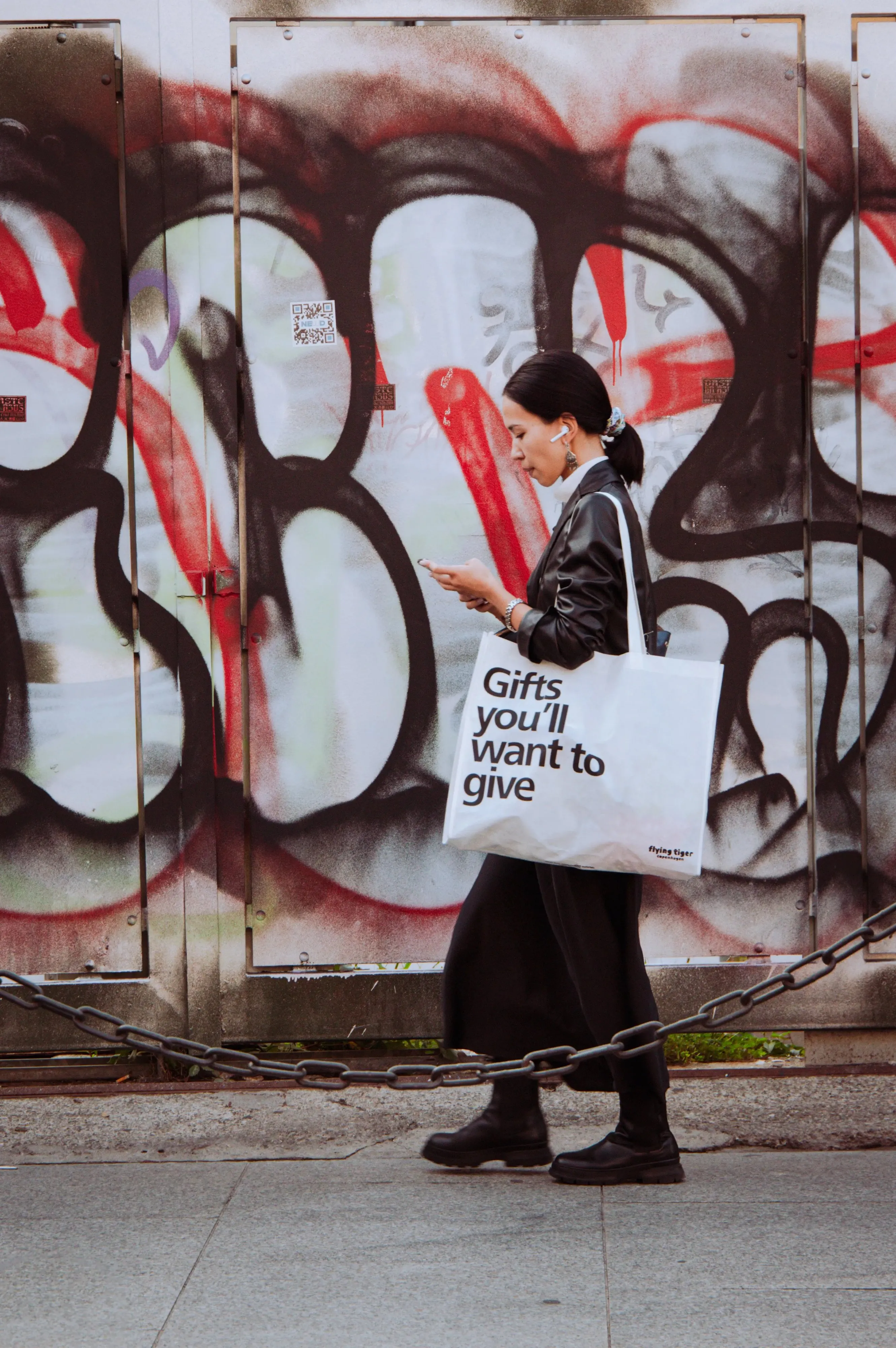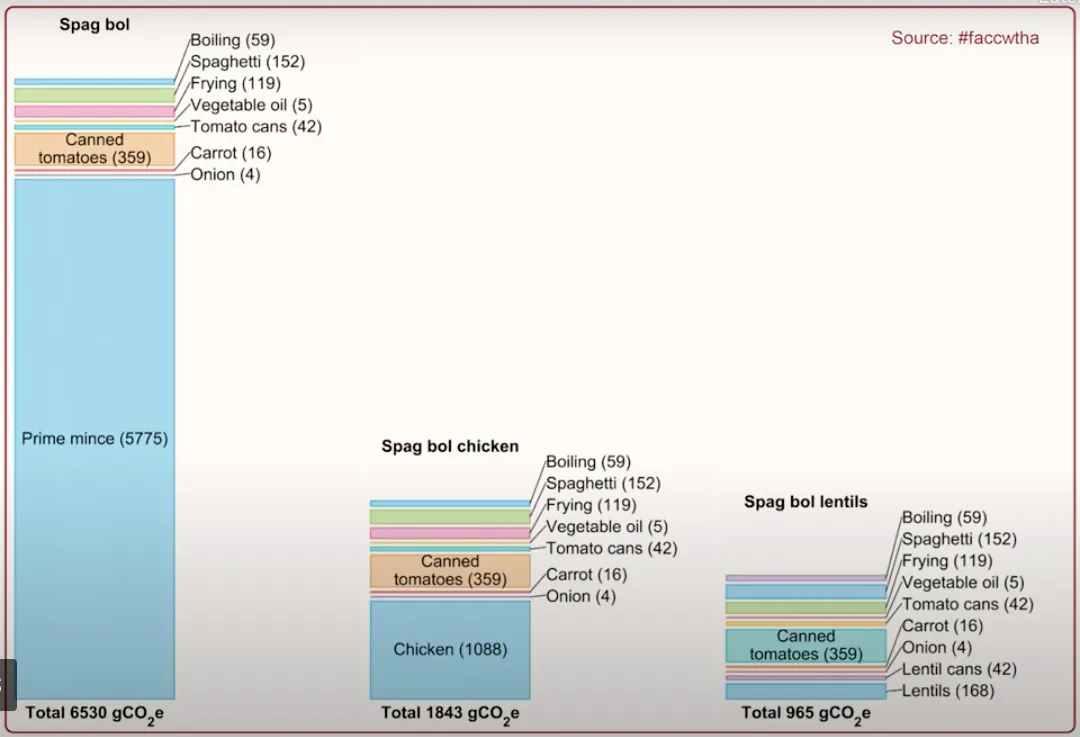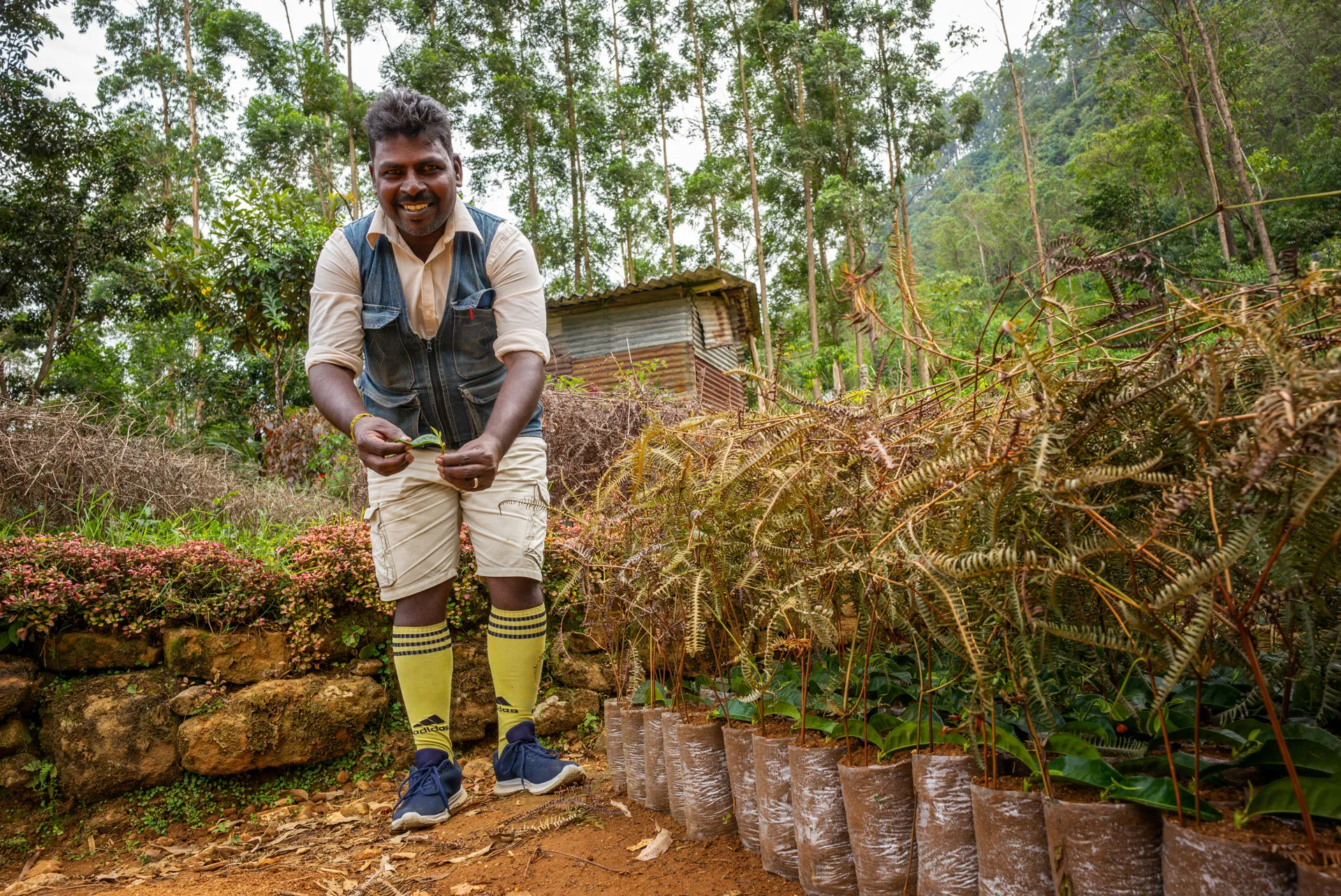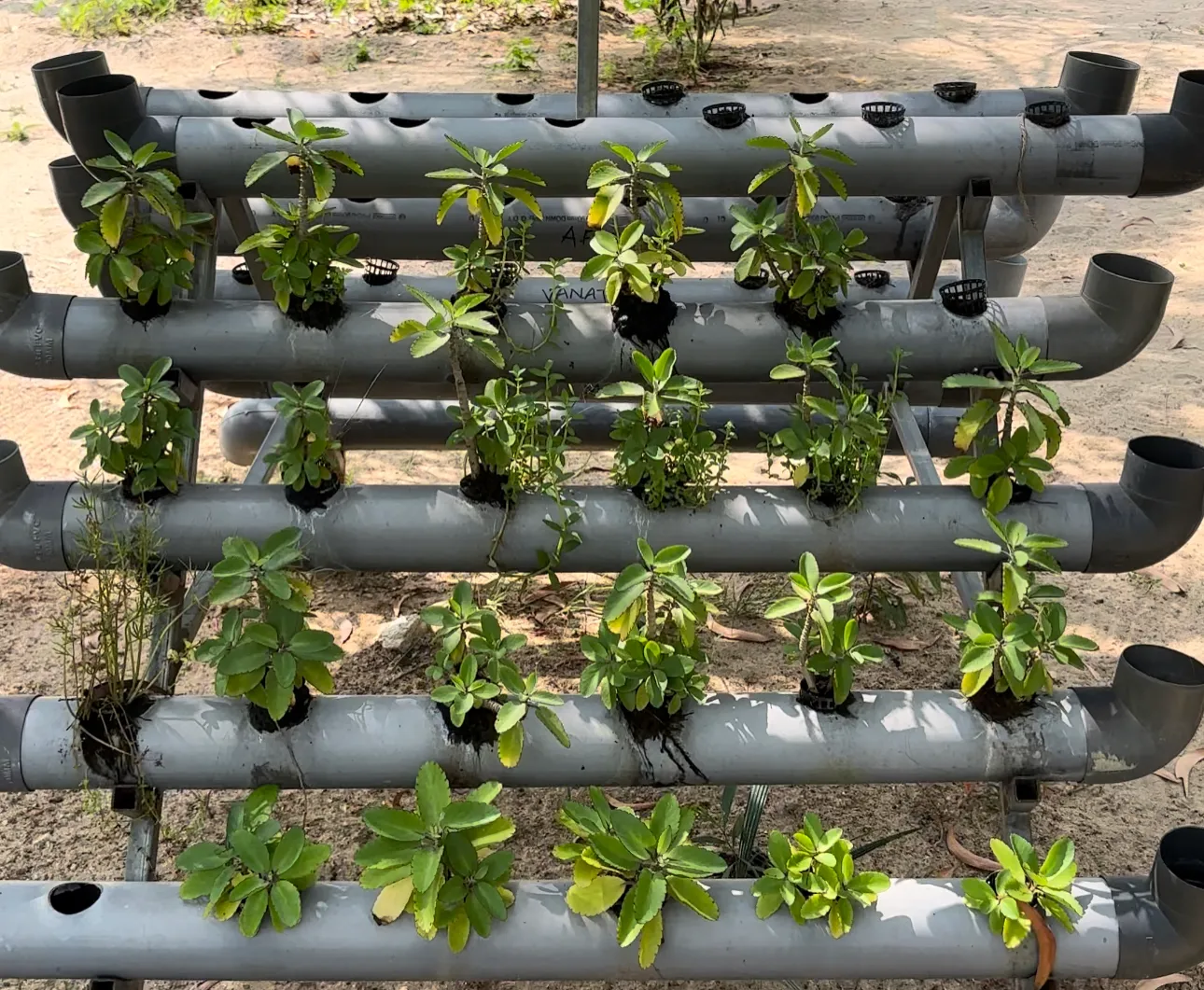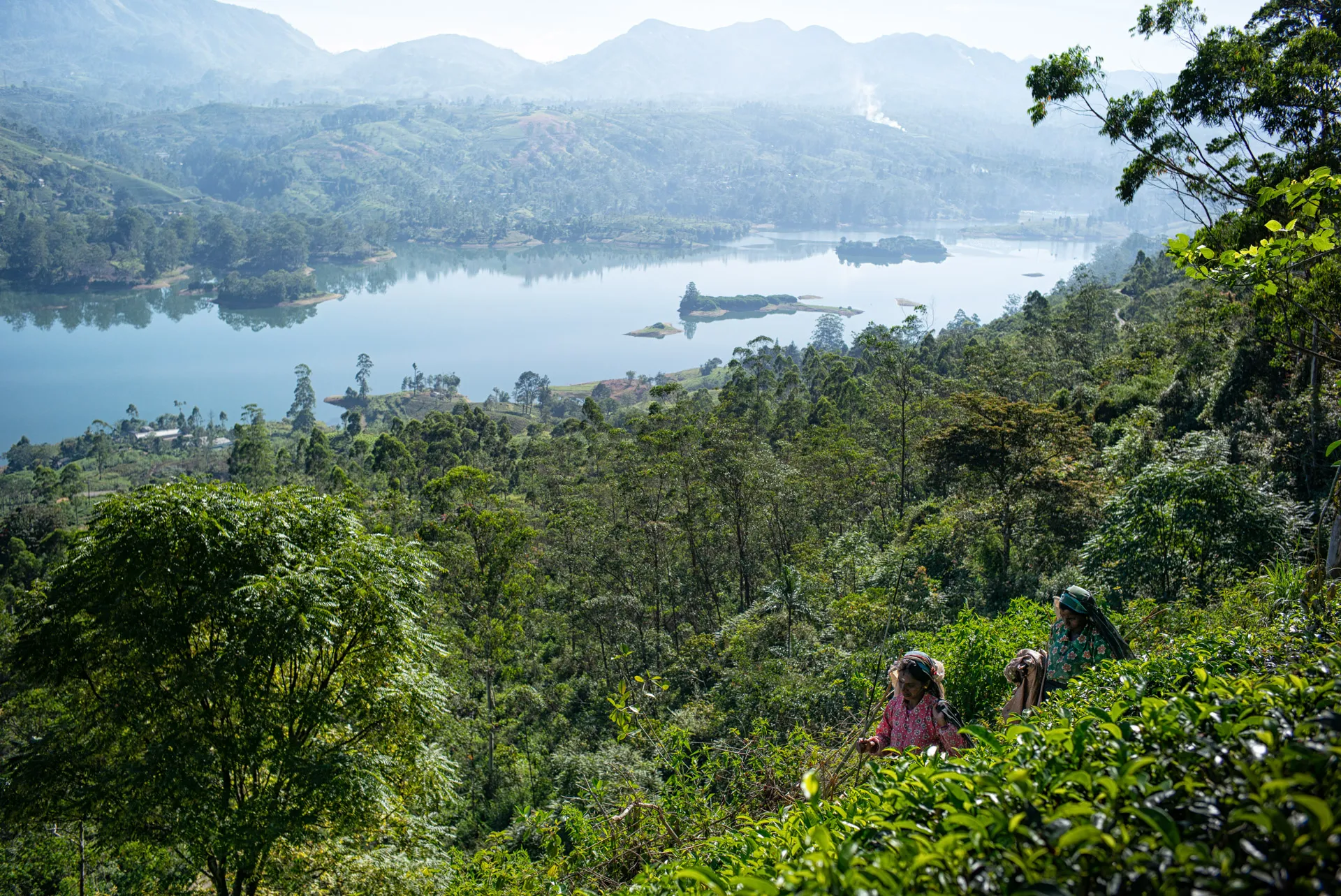5 sustainable budget tips for the cold season
Winter and many holidays are coming up. You want to be warm despite the rising cost, be kind to the environment and still experience unforgettable holidays. Don't worry. Here are 5 ways to save money and reduce your carbon footprint at the same time.
Chapters
Tip 1 - Stay warm and save sustainably
Energy bills make up a big part of your monthly expenses. Over the past year, they have only gone up but if you heat smart, you can save a lot of money on your energy bills – which is good for the environment and for your wallet. You don't have to worry about feeling uncomfortable in your home. Fortunately, there are all sorts of ways to save energy, stay warm and be kind to the environment, all at the same time. With these tips, you can save in sustainable ways.
5 suggestions to keep warm this winter
There is a lot of money to be saved within your energy bills and how you heat your home plays a key role in this. With these 5 suggestions, you can save lots right away.
1. Turn your heating down 1 degree by default
When at home, turn the heating down one degree. This can help save you quite a lot of money on your energy bill. If you are used to setting the heating to 20 degrees, you will find that 19 degrees is often warm enough. If you still get a chill, it is time to get moving. It’s good for your health and it will warm you up. A short walk outside will give you a warm feeling when you get back in.
2. Warm slippers & tea as morning heating
If you are someone who likes to turn on the heating in the morning before going to work, it pays to break the habit. Your heating needs quite some time to warm up your home. It would be a shame to waste this energy when you are out the door after your morning ritual. Often your hands and feet are the first body parts to react to the cold, so if you keep them warm, you have already gained a lot. Get out of bed, immediately put on your warm slippers and start your day with a hot cup of tea. A thermos bottle will keep your hands and your tea warm for longer.
3. Turn your heating down to 15 degrees
Turn your thermostat down to 15 degrees at night. This will easily save you around EUR 370 per year with current prices in the Netherlands. If you do this as early as an hour before you go to sleep, you will save an extra 75 euros a year.
4. Keep the heat in
When you do turn on your heating, you want the heat to stay inside. Insulation is important to keep cold winter air out. There are all kinds of ways to ensure that heat does not escape.
- Insulate your windows and doors with draught strips. These are available in any DIY store, usually for a cheap price.
- Keep curtains open during the day to let in warm sunlight to warm your home. Close your curtains in the evening to prevent drafts and keep the heat inside.
- Coat your windows with insulating window film. You can immediately improve the insulation of single- and double-glazing. By applying this film to the inside of your windows, you turn single-glazing into double-glazing, so to speak. Your double glazing is upgraded to HR glass.
5. Stop wasting energy
All forms of waste are a waste of money and bad for the environment. Turn off lights, computers, TVs and appliances when you leave or go to bed. By unplugging small appliances, chargers and adapters, you avoid wasting energy. Because you are often not aware of it, this form of energy waste is also called vampire power. It can easily save you €100 a year. You have all kinds of apps that help you understand your standby consumption. Are you already using an energy consumption manager app?
An additional way to save even more money is to charge all kinds of small devices via a natural source, namely the sun, for example. Most people charge their phones almost daily. The cost per year of this is not extremely high, but if you have several phones and other devices, it can still save a nice amount of money with the current energy prices. A Solar Powerbank might be a nice gift for the upcoming holidays.
Tip 2 - Eat more plant based
The world needs to make big changes to combat climate change, according to scientists. One of the most effective measures we can take is to eat less meat. Researchers found that cutting out animal products could reduce global greenhouse gas emissions by 15 percent.
Eating less meat really does make a huge difference
Meat production accounts for 18% of man-made greenhouse gasses - equivalent to the entire transport sector. Reducing our consumption of beef, pork and lamb makes a huge difference. Two researchers, Patrick Brown (Stanford University) and Michael Eisen (UC Berkeley), have calculated the climate impact of a global plant-based diet.
"If we stop eating meat and switch to a plant-based diet worldwide, it will stop the growth of greenhouse gas emissions for 30 years. Reducing or ending animal agriculture should be at the top of our list of climate actions," Brown told Science Daily.
It's worth it. For every day you eat less meat in the week, you reduce your impact on the environment by as much as 5-10 per cent, according to the Dutch Nutrition Centre. See below the difference in environmental impact when choosing spaghetti with beef, chicken or lentils.
The good news for the planet is that the segment of flexitarians is growing. The estimation according to the food institute is that 15% of the population is already flexitarian and people are more and more willing to replace meat in their dishes with plant-based foods. But it is not only about reducing or cutting out meat completely. The choice of ingredients, cooking efficiently (less oven use) and cooking in bigger batches also already have an impact. This TedTalk from Sarah Bridle is filled with insights and tips on how we can eat our way out of the climate crisis.
Is a more plant-based diet (vegan) better for your health?
A more plant-based diet is also said to be healthier. There is a lot of research that indicates you could be less likely to suffer from cardiovascular disease, diabetes, cancer, obesity and Alzheimer's. Based on this, it can be assumed that a healthy plant-based vegan diet could also be associated with a longer lifespan, but more research on 100% vegan diets are needed to be absolutely certain.
Dutch Professor Tim Spector looked into whether being Vegan is really that healthy. His conclusion; a 100% plant-based diet certainly has an impact on your health, but according to him, there are also unhealthy vegans. Your lifestyle plays a bigger role than the products you put on the menu. Vegan cheese is too fatty and salty, according to him, and the same can be true for meat substitutes.
"First research suggests that green and plant-based does indeed seem super healthy: a meta-research comparing 40 scientific studies on a vegan lifestyle found, for example, that a plant-based diet can reduce the risk of heart disease by 40 per cent. That's impressive." says Tim Spector.
He does not recommend going 100% vegan for children. His warning: make sure they get enough iron, vitamin B12 and amino acids. Supplementary vitamin pills are not always sufficient as a supplement. He also sees the positive impact on nature. Therefore, his scientific advice is: eat a little less meat, but treat yourself to a nice piece of local organic meat now and then.
Surprise your loved ones with a plant-based Christmas dinner
The holidays are just around the corner. A good time to start thinking about how you can surprise your guests with a sustainable Christmas dinner. If you are like most people, you probably don't want to serve anything too healthy - you just want to eat well and enjoy. But there are plenty of ways to make healthier choices without sacrificing taste. Here are three simple swaps you can do this holiday season.
1. Replace red meat with beans.
Beans are packed with protein and fibre, making them perfect substitutes for fatty cuts of beef, pork, lamb and even chicken. They are also great sources of iron, folic acid, magnesium, potassium, zinc and B vitamins. And because they are high in fibre, they make you feel full for longer. Try black bean burgers, baked beans, lentils, chickpeas, kidney beans, cannellini beans, pinto beans and white beans.
2. Swap dairy for almond milk.
Dairy products contain saturated fat, cholesterol and sodium, while almonds are rich in monounsaturated fats and vitamin E. Moreover, they are low in calories and carbohydrates, making them a smart substitute for sugary drinks and desserts. Almond milk is delicious in oatmeal, smoothies, yogurt parfaits, pancakes, waffles, salads, pasta dishes, soups and baked goods. You can find unsweetened varieties in supermarkets, health food shops and also online.
3. Add vegetables to your side dish.
Vegetables are a great way to add nutrients to your meals without adding excess calories. Choose colourful vegetables like broccoli, cauliflower, carrots, green peas, mushrooms, spinach, tomatoes, peppers, onions and courgettes. Include them in stews, stir-fries, casseroles, soups, salads, sandwiches, wraps and appetisers.
Inspiration for a sustainable Christmas dinner
Are you up for a challenge this Christmas that will surprise your guests and be kind to the world? The above swaps will help you quite a bit already, but if you are looking for more inspiration for your Christmas menu, consider signing up for this Vegan challenge, you'll receive all kinds of inspiration for a vegan Christmas.
Dilmah fan Miljuska Witzenhauser also has plenty of inspiration for a vegan (no animal products), vegetarian (no meat) or flexitarian (reduced meat) Christmas menu.
Batch cooking, less oven use and meal planning not only helps save money and reduce stress, but also helps reduce food waste. Especially during the holidays, when we often go overboard often make too much. Then, if you did get too enthusiastic and have a lot of leftovers, freeze them for later. Often they can be enjoyed well into January and February.
Tip 3 - Top 5 sustainable gift ideas for Sinterklaas & Christmas
When you do your shopping for the holidays do you consider the sustainability of your gifts? You've probably heard of the term 'eco-gifting'. This refers to giving something that is eco-friendly or sustainable. These are gifts that have the best interests of the environment and/or people at heart. If you want to make sure your gift doesn't hurt anyone, consider the impact it will have on the planet and all its inhabitants.
Make the gifts yourself
Being creative is fun, and it can also help save money. So why not let yourself go and make your own gifts? Surprise your friends and family with home-baked muffins or a delicious cake, make your own recycled candles from leftover candle wax. Use as much eco-friendly, organic and/or recycled ingredients/packaging as possible. The recipient will appreciate all the hard work you put into it!
2. Gift a surprise experience
There is no denying that the holidays bring a lot of new stuff into the house. Some of these items are never used This year, what if we gave experiences instead of stuff? Even small gifts for fun times, like a book full of coupons for coffee dates with your mother or grandmother, might be appreciated more than you think.
Looking for inspiration? Think of the person the gift is for and elaborate on the following ideas:
- Going to a local performance, play, sporting event or amusement park together;
- Gift vouchers in the form of services, such as gardening, cooking food or grocery shopping;
- Gift vouchers in the form of time together, such as a date at the (home) cinema or a picnic in the park;
- creating something artistic, for example writing a personalized poem or self-painted picture of you together.
- Gift a game that provides & deepens your mutual bond, such as Vertellis question card game. They have a special edition for the holidays, which creates an even closer bond with the people you care about. After all, that's what the holidays are really about....
3. Sustainable gifts that let you plant a tree
In the cold winter and with high energy costs, socks, a Christmas jumper or a nice plaid are a good gift option for many people. Make it sustainable by choosing an ugly Christmas jumper for One Tree planted annual Christmas drink, which plants a tree for every purchase. You can find more gifts that help you fight deforestation, such as green socks from a seller like e.g. Conscious Step.
4. A sustainable pampering gift
Gift someone some self-care through a voucher for a well-deserved massage, a conversation with a coach, a trial class at a nearby yoga studio or make a delicious Rainbow body scrub from scratch.
5. Give a donation as a gift
Is someone committed to nature or people who are less fortunate? Then it's a nice gesture to make a voucher, with which you can donate money in their name for a charity of their choice.
Tip 4 - Get creative with wrapping paper.
Everyone loves a beautifully wrapped gift, but there is a downside to using gift paper. Give old book pages, maps, canvases or old newspapers from the paper bin a second life as wrapping paper. With a nice ribbon or string it can look very sophisticated. Don't feel like crafting anything yourself? We are very excited about Dutch Atelier revive. They make reusable gift packaging that makes unwrapping special and sustainable. After unwrapping, it doesn't go into the trash, just take it home again for another gift.
Tip 5 - Try an alternative to a Christmas tree
"The climate impact of one Christmas tree (production, transport and disposal) is roughly equivalent to 25 kilometers of driving. This comparison assumes that a real Christmas tree lasts 1 Christmas and an artificial Christmas tree lasts several years. So you are better off buying a tree close to home than driving 10 kilometers up and down to pick up a rental Christmas tree. If you are curious about the impact of Christmas trees, try this calculator to gain some insights.
A nice alternative that is impact free is to look for stuff you already have lying around and turn it into a waste-free "tree". This saves money and also a lot of damage to the environment. Experiment with decorating a houseplant, wrapping a bookshelf or ladder with greenery, or even drawing a tree on a big chalkboard. You can also have a pine tree in your backyard year-round, so you can enjoy it all year and bring the tree inside for Christmas.
Explore the world of kindness
Have you ever wondered about the lifecycle of a tea plantation, particularly how new tea plants are cultivated and old ones are managed? I went to Dunkeld Tea Estate, where the art and science of tea begins in the nursery.
Discover how the MJF Centre for Dignified Empowerment and Sustainable Development helps Eastern Sri Lanka's recovery from natural disasters and addresses climate change through sustainable practices and community-focused initiatives.
You might have heard it already, but what is exactly World Earth Day? Let us talk you through what it stands for, what it means for us at Dilmah, and how it is not just a day but a part of our values.

